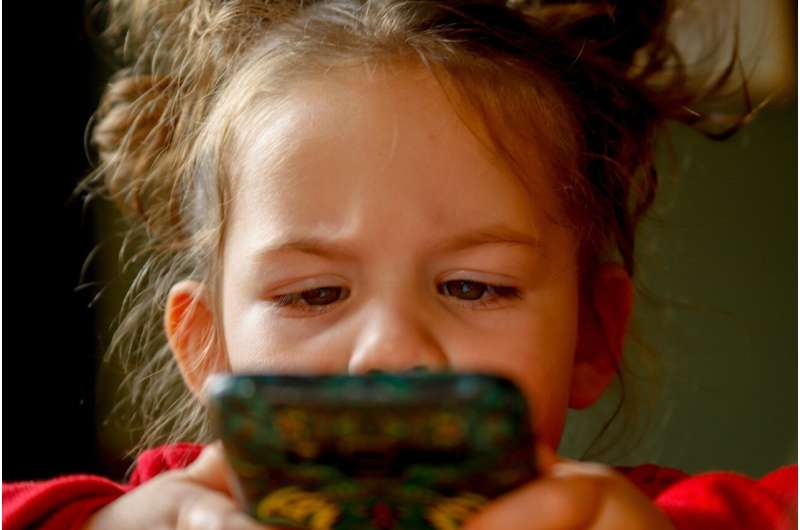This article has been reviewed according to Science X's editorial process and policies. Editors have highlighted the following attributes while ensuring the content's credibility:
fact-checked
trusted source
proofread
Survey: More than a third of children worry at least once a week, with their tendency to worry progressing with age

More than one in three children ages 9 to 13 (37%) worry at least once a week, primarily about school (64%) and friendships (41%), with their tendency to worry progressing with age. Older children (age 13) are more likely than their younger counterparts to report feeling as though they will never stop worrying (48% vs. 22% for 9-year-olds).
This is according to the results of What's Worrying America's Kids, a national survey conducted by The Harris Poll on behalf of Nemours KidsHealth. The survey results were announced today to coincide with the launch of a refreshed website for Nemours KidsHealth, a pioneer and leader in pediatric health content that has been trusted by millions worldwide for more than 25 years.
The Centers for Disease Control and Prevention documented high levels of anxiety and worry among teenagers. Nemours KidsHealth commissioned this survey of 504 youth ages 9 to 13 to better understand their worries and how to provide support during these pre-teen years.
"Understanding what children worry about most often and at what ages offers an opportunity for parents and caregivers to help children develop coping skills to grow into healthy adults," said R. Lawrence Moss, MD, President and Chief Executive Officer of Nemours Children's Health.
"Our growing nationwide youth mental health crisis requires parents, caregivers, teachers, and healthcare professionals to work together to ensure our youth have the support and resources they trust. Caring for children's mental health is equally as important as caring for their physical health, and a prerequisite for changing children's health for good."
Some of the key survey findings include:
Frequency of worry
- Most children (86%) report worrying, with one in three (37%) worrying once a week or more.
- 1 in 3 children (33%) feel they worry more than most children their age.
Sources of worry
- Children worry most commonly about school (64%) and friends or friendships (41%), with girls more likely than boys to worry about friendships (50% vs. 32%).
- More than one in three children (35%) worry about the health of people they love.
- Children who worry about their looks (65%), being bullied (55%), and about their friends or friendships (47%) say that they do so once a week or more.
- For 1 in 5 children, their worries extend to the world around them. These children are worried about money (21%), violence in the world (20%), and the environment (19%) and worry about these topics at least once a week.
What kids do and coping mechanisms for worry
- Regarding the effects of worry, many children say they feel distracted or unable to focus (40%), sad or miserable (36%), or feel quiet or like they don't want to talk to anyone (34%). Others report feeling sick to their stomach or like their stomach hurts (23%) or head hurts (21%).
- When they feel worried, nearly all children (97%) say they take actions to make themselves feel better or make themselves stop worrying. Roughly half say they talk to someone (49%), watch TV (49%), or play video games (48%).
- Of these children, talking to someone (96%), and doing something creative (93%) top the list of actions that actually make them feel better.
Support for worry
- Among the younger children polled—ages 9 to 11—more than 75% say they turn first to their parents for information or advice (77%), but that number dwindles to only 51% for 12 to 13-year-olds.
- Overall, 53% of children think that adults don't understand what they worry about, ranging from 45% among elementary school children to 59% for middle schoolers.
"What's clear from these survey results is that children have the capacity to be resilient—they recognize when they are worried and are usually willing to do something about it," said Meghan Walls, Psy.D., Pediatric Psychologist at Nemours Children's Health and Nemours KidsHealth Medical Reviewer.
"Understanding why kids worry and signs to look for can help us, as adults and parents, provide early intervention and provide our children with the appropriate resources to help them better understand and deal with their worry. Laying this groundwork when children are young is especially important, so they build the tools to cope with the emotions and turmoil throughout childhood and adolescence, leading to improved mental health as adults."
More information: Survey summary: www.nemours.org/content/dam/ne … y-survey-summary.pdf





















